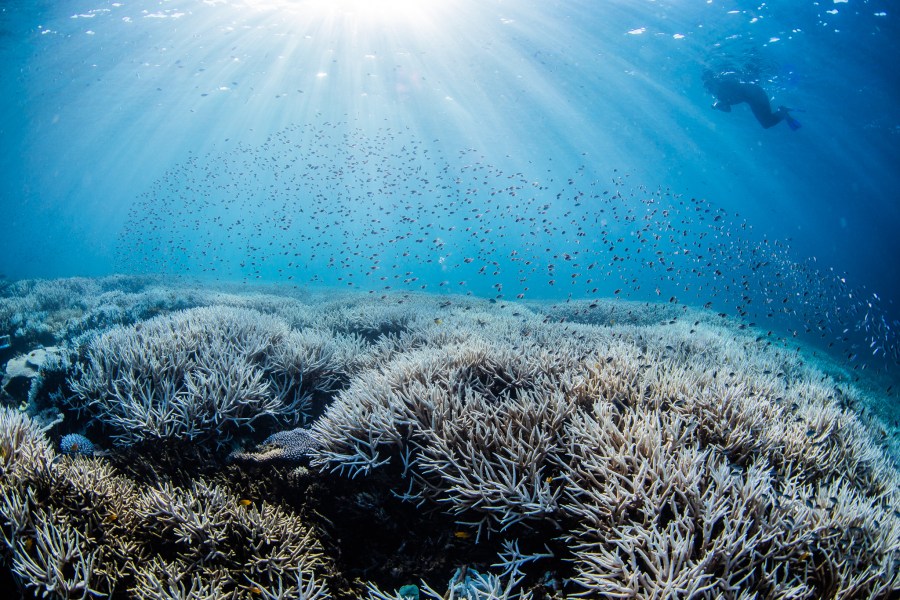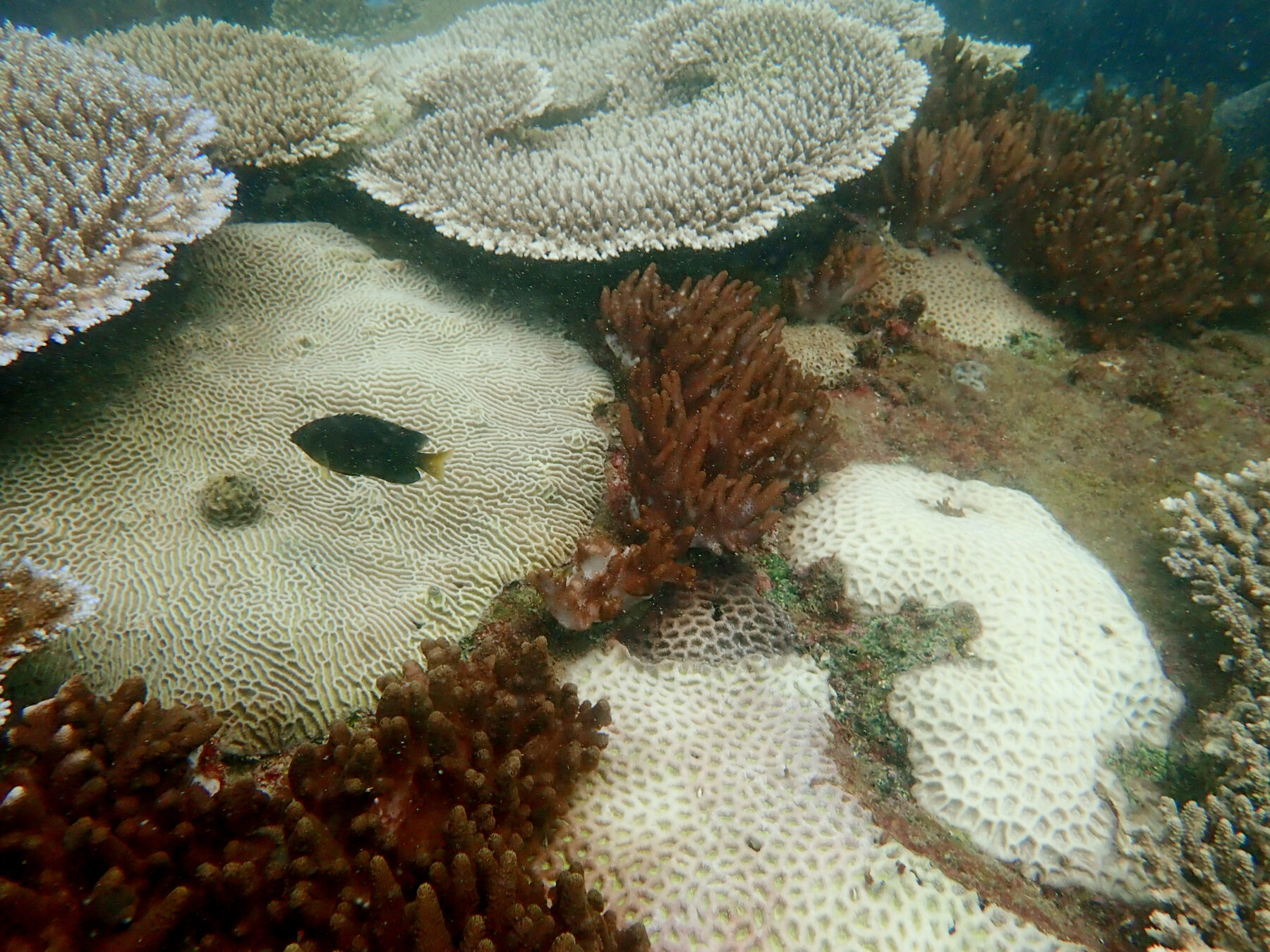Another summer, another mass coral bleaching event hits GBR

“Surveys confirm a widespread, often called mass, coral bleaching event is unfolding across the Great Barrier Reef.”
This was the announcement made late last week by the Great Barrier Reef Marine Park Authority (GBRMPA), confirming the reef’s fifth mass coral bleaching event in just eight summers.
The conclusion was drawn from aerial surveys encompassing two-thirds of the World Heritage Site, including on more than 300 inshore, midshelf and offshore reefs.
The GBRMPA stated the surveys – spanning as far north as Cape Melville and as far south as Bundaberg – “revealed prevalent shallow water coral bleaching on most surveyed reefs and results are consistent with patterns of heat stress that has built up over summer.
“While aerial surveys show that this coral bleaching event is widespread, the severity and depth of coral bleaching can only be assessed through in-water surveys. We are continuing to conduct in-water observations with research partners and extended observer network,” the statement said.
Breaking the wrong records
Huge swathes of the GBR also experienced mass coral bleaching in the summers of 2016, 2017, 2020 and 2022, making this year’s event the fifth in eight summers, with other events occurring in 1998 and 2002.
“Five mass bleaching events in eight years shows that climate change is putting tremendous pressure on the reef,” says WWF-Australia’s Head of Oceans, Richard Leck.
He says the current underwater heatwave is most intense in the reef’s southern regions, raising concerns for unprecedented coral deaths: “Since 2016, this area has largely escaped the severe impacts caused by bleaching as previous events have occurred further north.
“WWF is very concerned that this bleaching event is unfolding in an area where corals have not been previously exposed to these extreme temperatures. Unless we see a significant drop off in temperatures in the next few weeks, the risk of significant coral mortality is high.”
‘I have never felt the water as warm as this’
Indications that another mass coral bleaching event was looming were recorded late last month by scientists at Queensland’s James Cook University.
The university’s Tropical Water and Aquatic Ecosystem Research (TropWATER) team observed moderate to severe coral bleaching throughout The Keppels, a group of islands offshore from Yeppoon, during routine surveys.

At the time, TropWATER scientist Dr Maya Srinivasan said the water temperatures at The Keppels were well above the summer average, reaching 29°C during multiple days of surveys.
“I have been working on these reefs for nearly 20 years and I have never felt the water as warm as this,” she said.






